Last week, the Infectious Diseases Bill to help the country handle disease outbreaks passed its second reading at the Federal House of Representatives. However, controversy about what the bill entails has sprouted outcries against it, especially on social media.
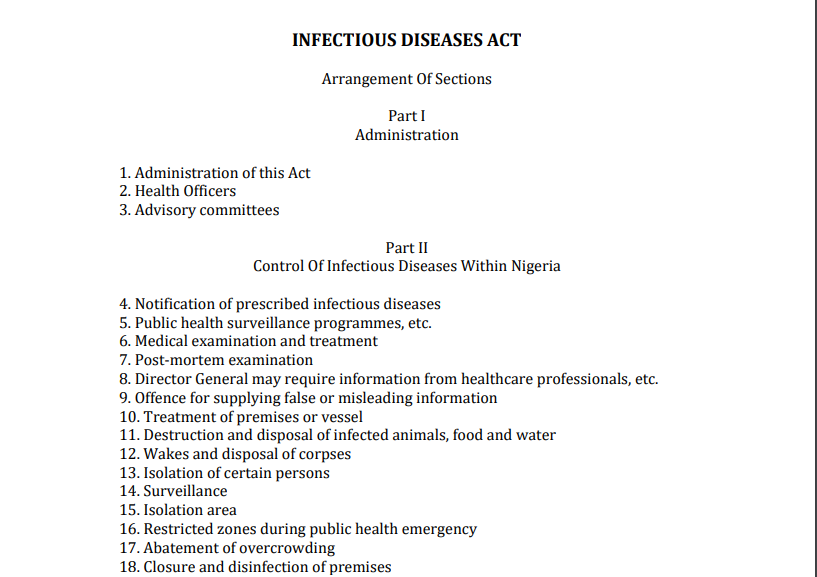

The Infectious Diseases Bill, which was sponsored by the Speaker of the Federal House of Representatives, Femi Gbajabiamila, is supposed to replace the National Quarantine Act by providing special powers that would allow the government to curb outbreaks.
With the current COVID-19 outbreak ravaging the country, one would expect that such a bill should be lauded by the public. On the contrary, the bill has been met with strong opposition with several Nigerians claiming it creates more problems than it purports to solve.
COVID-19 has infected more than 2,800 people and killed more than 90 in Nigeria
Riddled with questions, I examined the Infectious Diseases Bill to ascertain if it is as bad as people claim.
Coincidence or Plagiarism
The first red flag I discovered about the bill is that, just as people claimed, it was actually plagiarised from the infectious disease act of another country. The 43-draft of the infectious disease bill is over 90% plagiarised from Singapore’s Infectious Disease Act of 1977.
What this means that the speaker who proposed the bill without research and probably no consultation with relevant bodies as to what the country really needs to fight an outbreak, copied word for word a law enacted for use during the70’s.
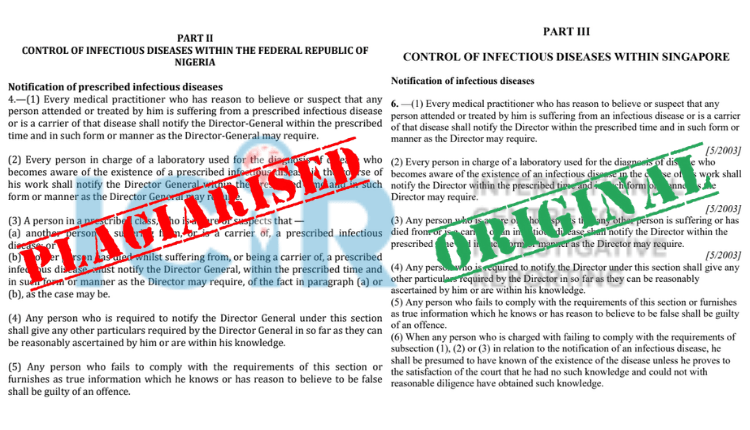

What makes this revelation more troubling is the fact the Act that was copied was enacted at a time when Singapore was still a one-party state. For a country operating a democratic system of government, completely absorbing the law of a country with a history of dictatorship is a danger to the freedom of democracy.
Saviour or Dictator
Examing the first few sections of the bill, the issues addressed and the power granted to the Director-General (DG) of the Nigerian Centre for Disease Control (NCDC) appears justifiable as it addressed some of the measures needed to prevent spread during an outbreak.
With the fatalities close 100 and the current situation in Kano State where religious practices are affecting the proper handling of people who died with symptoms of COVID-19, empowering the government with a better solution to handle the situation could be a saviour.
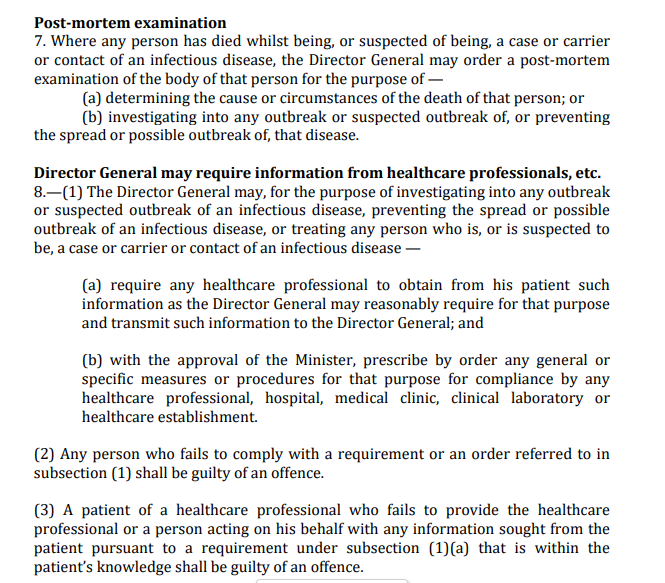

For example, the Section 7 and 12 of the bill, which gives the DG of the NCDC power to acquire corpse suspected to have died of suspicious symptoms without confirmation for proper autopsy, as well as the power to ensure that corpses of those infected be disposed properly to protect public safety.
However, critics have said the Infectious Diseases Bill basically makes the DG of NCDC an unelected dictator. According to them, the bill is more about making the DG of NCDC and the Minister of Health become unjustifiably powerful.
Although their claims may seem audacious, Section 15 shows a troubling provision. Under the section, the DG has the power to declare any house an isolation area or order the arrest of any person attempting to leave such an area.
“The Minister may, for the purpose of preventing the spread of possible outbreak of infectious disease, by notification in the Gazette declare any premises to be an isolation area…A person who leaves or attempts to leave or is suspected of having left an isolation area in contravention of an order under subsection (3) may be arrested without warrant by any police officer, or by any Health Officer authorised in writing in that behalf by the Director-General.”
Extract from infectious diseases bill – Section 15
Arresting without warrant means a police officer on the order from the DG can arrest and detain someone without any proof, all he needs is “suspicion”.
According to a political analyst, Oluniyi Gates, a person so arrested will have no right to a lawyer as their fate will be in the hands of DG NCDC and Minister, not a capable court of law.
This raises concerns that the bill empowers a form of dictatorship as it effectively removes constitutionally guaranteed right to assumed innocence and fair hearing. Also, more troubling it gives the power to detain without proof to the police force which is notorious for its brutality and flagrant abuse of power.
Similarly, in Section 24, the police are given the power to arrest anyone who is suffering from an infectious disease. The ambiguity of this section is threatening as the section give police the right to arrest you even if the infectious disease you have isn’t easily communicable or peradventure are merely symptoms of flu, which is pretty common.
DG with Presidential powers
Although Section 20 gives the DG power to stop an event like a concert which may cause the spread of disease during an outbreak, the clause can be easily misinterpreted to trample on the right to freedom of association.
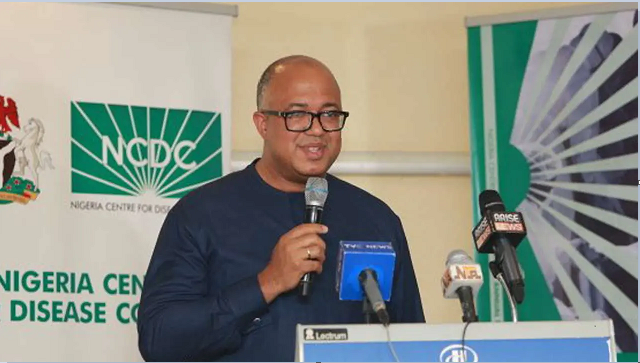

“Where it appears to the Director General that the holding of any meeting, gathering or any public entertainment is likely to increase the spread of any infectious disease, the Director General may by order prohibit or restrict, subject to such conditions as he may think fit, for a period not exceeding 14 days, the meeting, gathering or public entertainment in any place.”
Extract from Infectious Diseases Bill – Section 20
In practice, wordings are important in law and this particular provision can easily be taken to mean the DG has the power to cancel any form of gathering. This is especially dangerous as the power could be weaponized politically.
It gets more troubling, Section 71 gives the DG and his enforcers in the police and paramilitary forces the judicial immunity attributed to the president during an outbreak.
No liability shall lie personally against the Director-General, any Health Officer, any Port Health Officer, any police officer or any authorised person who, acting in good faith and with reasonable care, does or omits to do anything in the execution or purported execution of this Act. ”
Extract from Infectious Diseases Bill – Section 71
The scary interpretation of this is that the DG and his enforces will not be held accountable for what they use the power for. In essence, any misuse of power by security agencies either harassment or unjustified killing will not be tried by a Nigerian court.
Other Controversial Sections of the Infectious Diseases Bill
Another controversial section in the bill includes Section 8, which makes it compulsory for the doctor or any medical practitioner to forgo doctor-patient confidentiality and release medical details and records of any patient to the DG at his request. However, I don’t see much wrong with this section as long as it is confined to the duration of the outbreak
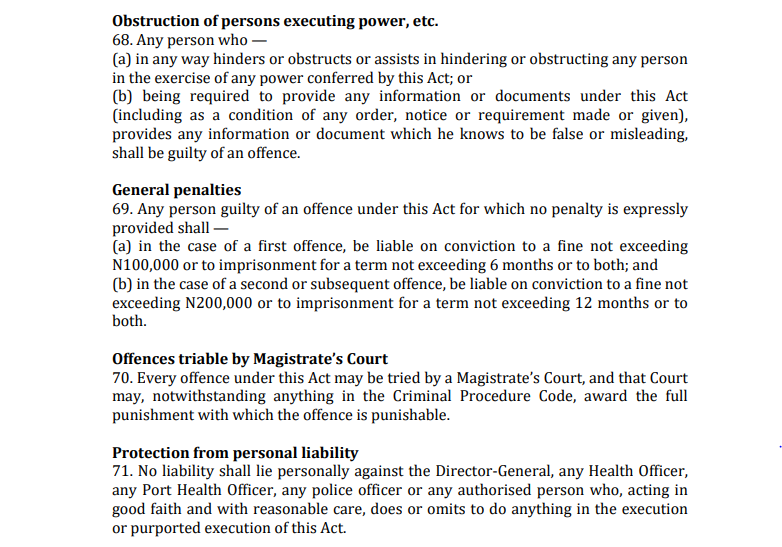

In Section 55, the DG was given the power to request any book, document or information and also forcefully enter premises without warrants to obtain such information. This section is especially threatening to freedom of the press as it gives leeway to assault on journalists and whistleblowers who are at loggerheads with the DG.
Generally, anyone found guilty of an offence under the bill will be fined about N100,000 or be imprisoned for a term not exceeding 6 months. for subsequent offences, the person will be fined N200,000 or imprisonment for a term not exceeding 12 months or to both.
Summary
The proposed Infectious Diseases Bill in truth poses a lot of concerns. Its tone and clumsiness of the wordings make the bill very dangerous if passed.
The Director-General of NCDC, Chikwe Ihekweazu, has pointed out that he wasn’t involved in the drafting of the bill and that it requires further consultation. He also added that he is not in favour of drafting a bill at this time.
“I’m personally not in favor of drafting a bill in the middle of a crisis,”
Chikwe Ihekweazu, the director general of the Nigeria Centre for Disease Control,
However, if this bill gets enough votes during voting next week, it will come very close to being approved and forwarded to the Senate. Although the DG may not want the nightmarish power the bill entails, if passed, it will give anyone who ever becomes DG Presidential powers.
In the past Nigerians have been able to stall unwanted bills like the Social media bill and Hate speech bill. With education already building on the potential danger of the bill, there is good hope that Nigerians will stall this bill too.






